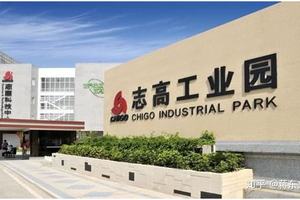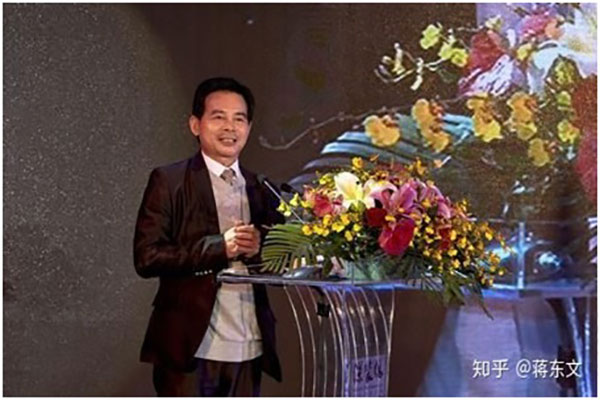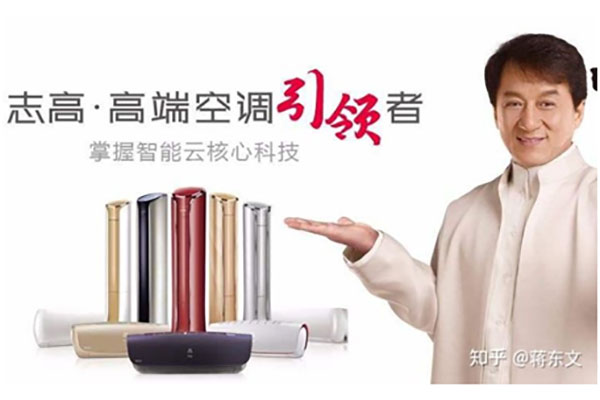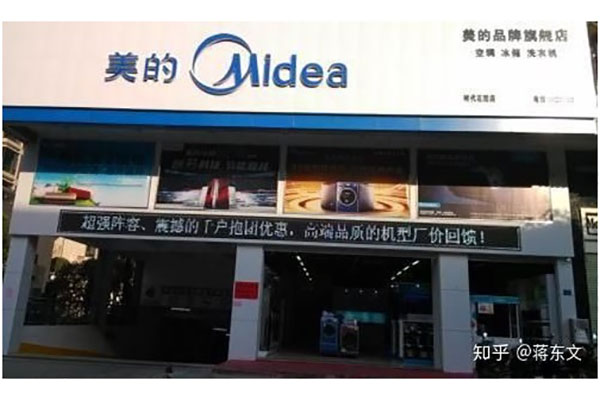
Chigo's net profit fell 1109%! Zeng Fengqi is now on the verge of bankruptcy.
This summer heat was supposed to be a "happy time" for air conditioners.
However, there is a company called Chigo Holdings Limited (hereinafter referred to as “Chigo Air Conditioning”) whose business is not so good.
Recently, Chigo Air Conditioning announced a “very significant sale,” which stated that Chigo Air Conditionin agreed to sell its property in Foshan, Guangdong Province, China for 450 million yuan. In addition, a significant portion of Chigo Air Conditioning's production facilities will also be demolished. Compensation from the local government for the demolition of 358 million yuan. This is not the first time that Chigo Air Conditioning has sold assets. What happened to Chigo, one of the past conditioning leaders?
Jingdong is extremely astonishing at data that shows that on June 18 (Black Friday for air conditioning in China) in the air conditioning category, the average viewing took only 7 seconds, and the turnover exceeded 100 million yuan. The three major brands Midea, Haier and Gree have already surpassed the 100 million view mark in less than three minutes.
“But when they see young people laughing, the old people cry.” In e-commerce, the big giants of the air-conditioning industry made crazy sales, but once one of the four giants of the industry, Chigo air conditioners stayed at the bottom ...
According to rumors in the market, in 2019, the production of Chigo household air conditioners was at zero for several months.
Established in 1994, Chigo Air Conditioning is listed on the Main Council of the Hong Kong Stock Exchange. After more than 20 years of rapid and sustainable development, Chigo has established manufacturing facilities such as Foshan, Jiujiang and Sihui. The annual design capacity for the production of domestic air conditioners reaches 10 million sets, and Chigo's business covers more than 200 countries and regions around the world. Since 2005, Chigo Air Conditioning has been at the forefront of the industry.
The founder of Chigo Air Conditioning is Li Sinhao.
Li Sinhao was born in 1964. After leaving school, Li Sinhao worked at home, and ten years later he began to create factories in 1982.
At first it was not an air conditioning industry, it worked in various fields, and dozens of factories were created.
In 1989, he began air conditioning maintenance, opened a repair shop, and officially began air conditioning. In 1992, together with Taiwanese businessmen, he established the Zhigao Air Conditioning company, which, after the sale by Taiwanese businessmen of the share, was completely transferred to Li Sinhao.
At the beginning, Chigo Air Conditioning quickly occupied the market with the main advantage of a low price. Guangdong Zhigao Air Conditioning Co., Ltd. was officially established in 2001, and was successfully registered in Hong Kong on July 13, 2009.
In 2005, Li Xinghao, founder of Chigo Air Conditioning, lured Khenon tech boss Zheng Zuyi, who was one of the first generation of refrigeration technicians at Tsinghua University, to Hisense.
Of course, the appearance of Zheng Zuyi not only brought Kelon-style advanced technology to Chigo, but also created a leading technology development platform for Chigo.
Over the next two years, Chigo developed rapidly, and its performance continued to grow, following in the footsteps of Gree, Midea and Haier, Chigo successfully held the position of industry leader at the fourth in the industry.
Ten years ago, in 2009, the state supported the development of the household appliance industry and introduced a subsidizing policy for household appliances in rural areas. Chigo air conditioning sales continued to grow. In the same year, Chigo Air Conditioning set a sales target of 100 billion yuan.
You know, Gree, one of the leaders in today's air conditioning market, exceeded 100 billion yuan in sales in 2012 alone.
At that time, Chigo air conditioners were popular throughout the country.
Until 2014, Jackie Chan was a representative of Gree. Being a rival to Gree, Chigo, influenced by the celebrity effect, lured Jackie Chan in 2014 and signed a 10-year cooperation agreement.
In addition to repeatedly digging the corners of Gris, Li Sinhao, the head of Chigo air conditioning, often “clicks” Dong Mingzhu (the head of Gree), and both sides often argue.
Dong Mingzhu once publicly stated that "the people who use Chigo are all the people who don't want Gree." “Gree relies on technology, not price.” From a comparison of enterprise development in recent years, Dong mingzhu really wins.
Two years later, the situation suddenly changed.
At this time, Gree and Midea just completed the transformation and modernization of enterprises. Soon, these two industry giants of today quickly completed a sales plan of 100 billion yuan.
However, Chigo gradually began to lose money. In 2011, Chigo Air Conditioning became the only loss-making home appliance company this year, whose profit of 454.9 million yuan in 2010 sharply turned into a net loss of 144 million yuan in 2011.
In fact, since 2012, Chigo Air Conditioning has embarked on a path of losses, as the demand wave has weakened sharply, Chigo has lost its competitive edge and started to decline.
In today's words, this is so: when the wave is gone, we can say that the Chigo air conditioner is the one who remained naked. In the first half of 2014, revenue from Chigo air conditioners was 5.44 billion yuan, net profit was 41.31 million yuan, and MIDEA's net profit was 6.61 billion yuan. Chigo's revenue was not as good as that of other companies.
In 2015, Chigo Air Conditioning generated revenue of just 7.774 billion yuan. Interestingly, in 2015, due to a serious decline in corporate sales, Li Sinhao, who retired, returned to the front line and took over as manager again.
At that time, the slogan of Chigo Air Conditioning was “to create the best air conditioning in the world” and “to achieve tens of billions of yuan by 2020”.
Chigo Air Conditioner positioned itself as a contender for the role of Gree, while Gree Electric and Dong Mingzhu were engaged in a “1 billion gambling contract” from Xiaomi. However, today Chigo air conditioners not only lost their qualifications for competition, but also fell to the point of "selling land for survival."
In 2018, according to the data disclosed in the company's financial report, the total annual turnover from Chigo air conditioners amounted to 9.235 billion yuan, which is 14.4% lower compared to the same period last year, the annual loss amounted to 480 million yuan, which is 1109. 2% more than the same period last year.
In comparison, Gree's revenue exceeded 200 billion yuan in 2018, an increase of 33.33% over the year, and net profit exceeded 26 billion yuan. At this time, Chigo's air conditioners not only completely lagged behind, but Chigo had to “sell the brush to save the hand, sell the land in order to survive!”
On March 31, 2019, Chigo Air Conditioning announced that it was indirectly wholly owned by Guangdong Zhigao Air Conditioning Co., Ltd. and intends to sell 40% of the issued share capital to the target company Guangdong Chigo HVAC Equipment Co., Ltd., with a total of 204 million yuan.
On June 12, 2019, Chigo Air Conditioning announced again that seller Guangdong Chigo Air Conditioning Co., Ltd. (an indirect 100% subsidiary of Chigo Air Conditioning) entered into a transfer agreement with the buyer, Guangdong, Hong Kong, Macau and Dawan District Property Management Co., Ltd., according to which the seller and the buyer agreed to sell the property located in Foshan , Guangdong Province, China, the sale value was 450 million yuan. At the same time, the seller received compensation of 358 million yuan for the demolition of production facilities from the local government.
It is even rumored that Chigo Holdings did not pay wages before and after the Ching Ming Festival (Chinese New Year) this year.
Regarding the stagnation of the development of the enterprise or even the need to sell land for survival, the reason given by Chigo Air Conditioning in the annual report for 2018 is that the deterioration in the global economic situation led to a decrease in the Group's revenues, a relative increase in the cost of raw materials led to a decrease in gross profit and sales. Cost increased, while sales and sales expenses increased by about 10% compared to the same period in 2017.
In terms of investment in R&D in China, in May 2019, the Chinese Business Research Institute published a list of “Top 100 R&D expenses of major companies in 2018”. Among them, Gree's research and development investment amounted to 7.268 billion yuan in 2018, Midea Group's research and development expenses amounted to 9.811 billion yuan, Qingdao Hayer research and development expenses amounted to 5.398 billion yuan, and Chigo air conditioning research and development expenses amounted to total 193 million yuan.
Chigo Holding has less than 200 million yuan to research and development, how to make the best air conditioning in the world?
A veteran of the air-conditioning industry said that the air-conditioning industry on the mainland has already emerged from the stage of only cheap price and volume and is moving towards an era of transformation, which is characterized by high efficiency and energy saving, towards an intellectual era characterized by the Internet of things. Due to insufficient investment and R&D potential, the market share of second and third line brands will gradually decline.
In the past two years, whether it’s a traditional manufacturing industry, such as the air conditioning industry or the growing Internet industry, represented by research and development in the field of microchips, this is not a market where you can bargain a large piece of cake by shouting slogans. If you do not work hard to do research and development, increase competitiveness, then your development will be limited and may destroy your market share.
It can be expected that competition in air conditioning will intensify further in the future. With the advent of the 5G era, the accelerated adoption of IoT technology, enterprises lacking technology investments will gradually disappear, freeing up markets and resources for truly powerful enterprises.


